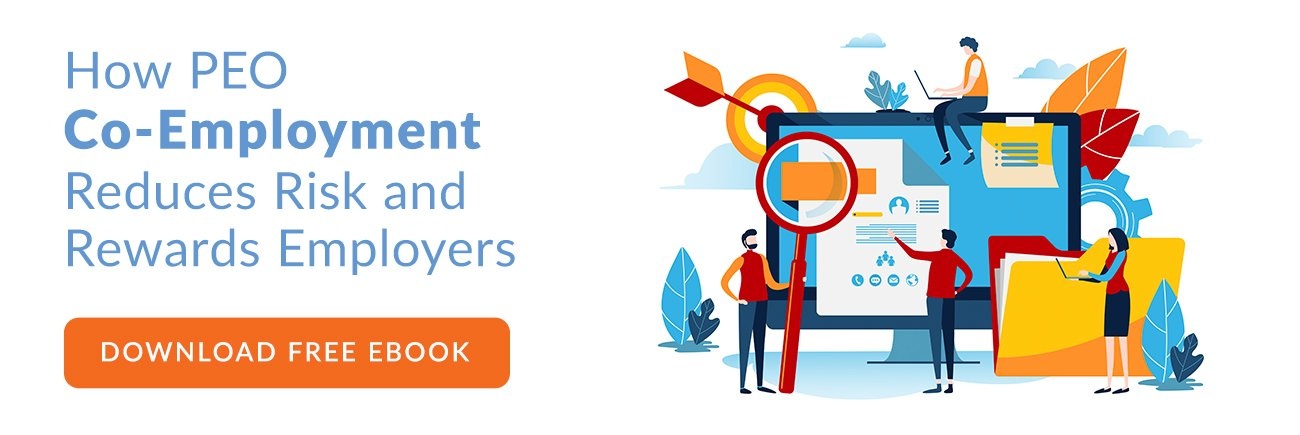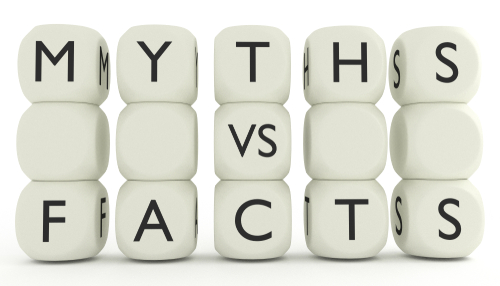More and more companies are finding the value of partnering with a professional employer organization (PEO), with 173,000 small and mid-sized businesses using their services. However, others are hesitant because of the high prevalence of myths surrounding PEOs. Understanding these myths and why they are so prevalent can help you get your mind around whether and why a PEO might be valuable to your company.
Myth 1: PEOs Replace Your In-House HR Team
Some HR professionals are concerned that partnering with a PEO will make them redundant. This may stem from the fact that part of the ROI of working with a PEO is that you don't need to hire extra HR staff.
By partnering with a PEO, you don't need to hire people full-time just to do tedious tasks, or try and find the budget for a full-time compliance officer. A PEO, however, is meant to complement your in-house team, not replace them. Because the PEO is handling routine administrative matters, your in-house team can do the things that really need their special skills and intimate knowledge of your company.
Myth 2: PEOs Take Control Of Your Business
Some business owners fear that a PEO will interfere with their ability control their employees. This is because they confuse PEOs with temp agencies and employee leasing arrangements.
While the PEO will be the employer-of-record for your employees, which allows them to, among other things, remit payroll taxes and put your people on their workers' comp, they do not interfere with hiring, firing, promotion, and discipline. Partnering with a PEO does not result in any loss of control over day-to-day decision-making.
Myth 3: PEOs Are the Same as Employee Leasing Companies
Along the same lines, it's easy to confuse a PEO with an employee leasing company. Employee leasing arrangements can be incredibly valuable for seasonal and other short-term needs, such as maternity coverage for a receptionist. However, they are very different from a PEO.
When you lease an employee, you are typically sent a qualified person from the company's pool, and may or may not get any say as to who this person is. They are paid by the leasing company at the rate they set, and you have to go through the leasing company to change anything. You essentially have little to no control. It's understandable that somebody who thinks a PEO is a leasing company would be reluctant to work with one, especially for key and higher-level employees.
Again, PEOs only handle administrative matters. They do not interfere with your choice of employees, cannot hire and fire on your behalf, and do not set the rates paid to your employees.
Myth 4: Employees Won't Like Working With a PEO
Your employees might be uncomfortable about the idea of partnering with a PEO. Nobody enjoys change, and they too might have heard some of the myths. For example, they might be afraid that the PEO will fire and replace them despite a good performance record.
However, when they see the benefits they will come around. A PEO will give them far better health and retirement benefits than they had before, without a corresponding reduction in their paycheck. They will also benefit from other advantages, such as wellness programs, return-to-work programs, and a fast response to their questions about their benefits. PEO clients have employees who are overall more engaged and loyal. The truth is that employees love PEOs.
Myth 5: My Business is Too Small For a PEO
It's a common misconception that HR outsourcing, in general, is only valid for larger companies. Some HR outsourcing solutions do indeed have minimum size and spend requirements, but this is far from true of all PEOs.
The best PEOs will work with all companies, regardless of the number of employees. In fact, small businesses get more benefits from working with a PEO because they have a greater need for affordable expertise without adding full-time employees. There is also a tendency for the business owner to end up taking on routine HR tasks, and become overworked, overwhelmed, or distracted.
If you have employees, you can work with a PEO.
Myth 6: PEOs Do The Same Thing as Payroll Companies
Outsourcing the payroll function is the most common HR solution used by companies in the U.S. Dedicated payroll processors, however, have an overall poor ROI, and many companies mistakenly think a PEO is the same thing.
This is not remotely true. Payroll companies only handle payroll processing. They run your payroll and then tell you how much you owe in taxes. This does save time for HR personnel, but that is the only thing it saves.
A PEO, in contrast, is a comprehensive outsourcing solution. PEOs do process payroll, but they can also remit the taxes for you, meaning you don't have to worry about it at all. They also handle benefits administration, compliance, and can give advice on many different areas of HR, ranging from return-to-work programs to diversity and inclusion.
Don't Believe PEO Myths
It's easy to fall into these PEO myths, but essential to realize that they are not valid. Companies of any size can benefit from working with a PEO, PEOs do far more than payment processors, and they neither take over your business nor replace your in-house team.
Instead, working with a PEO is a true partnership in which the PEO handles your routine, tedious HR issues, freeing your team to focus on things which grow your business. Forget the myths - working with a PEO is the best outsourcing solution for most companies.



